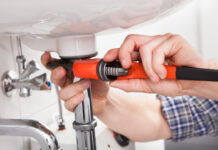Kids, teens, and adults have never known a time when they did not have access to technology. You could argue that technology and electronic devices are an inextricable part of their life since they grew up in a technologically focused world. When you are introduced to something from a young age, you are more likely to accept it and make it a normal part of your life. Cell phones and tablets have become the primary means of communication and participation in a number of other activities by people of all ages. Younger generations, on the other hand, tend to be more tech-savvy.
According to a study, mobile phones are owned by 95% of millennials (ages 18-34) compared to just 68% of those aged 66 to 74 and 48% of those aged 75 and up. (Study source: Huffington Post)
Well taking kids for granted when it comes to the disposal of electronic waste because they can do it well and that too at the best way! Therefore, here are the best that kids can do in helping dispose of electronic waste.
What Can The Kids Do For The Disposal Of E-waste?
Recycling used electronic devices, like recycling your weekly newspaper or a week’s worth of milk bottles and soda cans, is a good habit to develop. There are many ways for kids to participate in the recycling of their old devices:
1. Fundraiser And Recycling Campaign:
When you are living in Adelaide then you must know how much of the e-waste is generated and to what extent the skip bin hires in Adelaide becomes necessary. Therefore, to dispose of it at a smaller scale the best is to start a recycling campaign.
With new mobile phones being launched every year, several people have extra phones in their cupboards gathering dust. They should organize and host a mobile phone drive at school to collect people’s old phones. To work on a project like this, get permission from your school.
Many sites will give you money back if you trade in a device that has some value. This money will be used to collect funds for your school and its services, as well as a local or national charity. This is a perfect way to collect old mobile phones and chargers that are no longer in use and help the city minimize e-waste.
2. Learn To Fix Gadgets:
Most electronic devices are fairly easy to repair, even if you do not realize them. It’s also a wonderful way for children to learn while having fun while also being exposed to professional work. Allowing children to play with old or damaged gadgets will help them develop problem-solving skills and a sense of achievement when they successfully repair the device (or work in a new way).
There are several online guides for repairing a variety of electronic devices, including the free guides. They have basic step-by-step instructions for just about everything. Suggest to your teachers that you start a club at school where kids can get together and repair old gadgets together, as well as share their successes with stuff they have fixed at home.
Are you driven to recycle, reuse, and restore your old electronics at home? Are you inspired to start a series of old electronics in order to raise funds for a good cause? With households accumulating a number of electronic devices each year, children must learn to recycle and reuse their devices so that there will be resources for new devices when they grow older, as well as to protect the environment.
Where To Recycle E-waste?
Teach your children about the different materials used in the manufacture of electronics. The bulk of these products can be recycled and used to produce new pieces. Metals, plastic, and glass are among these products.
There are companies that dismantle old machines and separate recyclable materials. The reality about recycling is that it is possible to keep these useful materials in use while still shielding the atmosphere from toxic e-waste.
Kids And The Learning Of E-waste:
Electronic devices have become so popular among younger generations that the average number of devices per household has risen to a whopping 24 electronic products per household! Therefore, there shall be proper education on e-waste to avoid any environmental harm.
1. Teach Kids To Dispose Of Their Old Electronics:
They should be told about the risks of disposing of electronics. They should be told not to throw devices away with the regular garbage. Since devices (even small batteries) contain hazardous chemicals, children must understand that throwing away used cell phones, video game consoles, and cables is not a good idea because they will most likely end up in the landfill.
2. Learn To Reuse:
Check that your children’s electronics are all in good working order. They will decide not to use them in the future. Enable them to pass it on to someone who would benefit from it. Ask around to see if you can find a friend or family member who can use it, or donate it to a local charity that collects electronics.
In A Nutshell:
If kids may have the sense to dispose of things at a very young age they will have a sense of responsibility and won’t harm the environment, however, let your kids learn everything about e-waste.



















